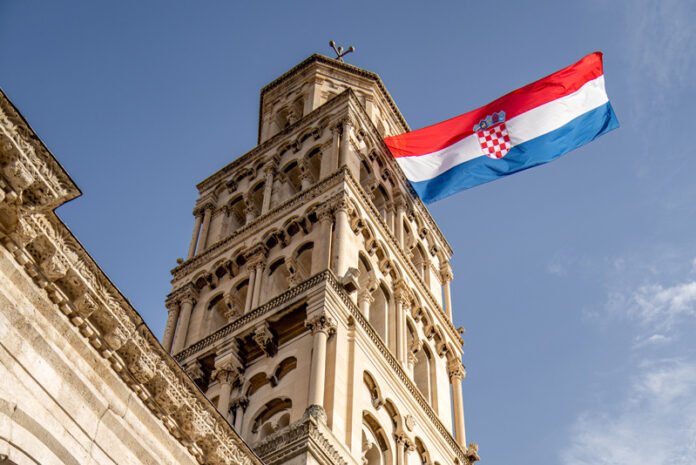Croatia became a Schengen area member country on 01st January 2023. This means you can travel to Croatia with a Schengen visa without obtaining a separate Croatian visit visa. And also they have adopted Euro as their currency and you do not have to carry Croatian Kuna for your transactions. This integration has brought several notable changes and benefits, both for travelers and the country itself.

What is the Schengen Area?
The Schengen area is a regional combination of 27 European countries that have removed passports and other types of border controls at their mutual borders. The area was named with the 1985 Schengen Agreement. The countries in the Schengen Area have agreed to allow free travel of citizens within the area, as well as the free movement of goods, services, and capital. This allows people to move freely within the area as if it was a single country. The countries in the Schengen Area are Austria, Belgium, Czech Republic, Denmark, Estonia, Finland, France, Germany, Greece, Hungary, Iceland, Italy, Latvia, Liechtenstein, Lituania, Luxembourg, Malta, Netherlands, Norway, Poland, Portugal, Slovakia, Slovenia, Spain, Sweden, Switzerland, and newly joined Croatia.
What is a Schengen visa?
A Schengen visa is a type of visa that allows its holders to travel freely within the Schengen area (all the countries listed above) without obtaining separate visas for each country. Visitors can stay up to 90 days within a period of 180 days. And also if you are a frequent traveler you can obtain a Schengen visa valid for up to 5 years.
You can apply for a Schengen visa fo the following reasons.
- Business Purposes
- Visiting friends and family
- Tourism and holidays
- Culture and sports events
- Airport transit and transit for seafarers
- Official visit
- Medical reasons
- Short term study and research purposes
To apply for a Schengen visa, it is required to submit a completed visa application form, a valid passport or a travel document, two recent passport-sized photographs, and other documents as required by the embassy or consulate of the country you will be visiting. You may also be required to provide proof of your travel plans, such as a round-trip ticket or a letter of invitation from a host in the Schengen area. The visa fee and any other applicable fees must be paid.
Where is Croatia?
Croatia is located in southeast Europe. It is bordered by Slovenia to the northwest, Hungary to the north, Serbia to the northeast, Bosnia and Herzegovina to the southeast, Montenegro to the south, and the Adriatic sea to the southwest. The capital and the largest city of Croatia is Zagreb. “Croatian” is the official language of the country, and the currency is Euro (used to be Croatian Kuna). Croatia has a diverse culture and a long history dating back to ancient times. It is known for its beautiful coastline and beaches, as well as its national parks and historic cities. Tourism is a significant part of the Croatian economy.

Why visit Croatia?
There are many reasons to visit Croatia. Here are a few,
- Beautiful coasts and beaches: Croatia has a long coastline along the Adriatic sea, with numerous beaches and coves to choose from. Whether you want to relax on a sandy beach, swim in crystal-clear waters, or try your hand at water sports, Croatia has many things to offer.
- Rich history and culture: Croatia has a long and fascinating history, with a mix of influences from various cultures. The country is home to many historic sites, such as the ancient city of Dubrovnik, the walls of which are a UNESCO World Heritage site.
- Delicious cuisine: Croatian cuisine is a blend of Mediterranean and Eastern European flavors. Some must-try dishes include Cevapi (grilled minced meat), Pasticada (beef stew), and pastries like Krostule and Fritule.
- Affordability: Croatia is generally less expensive than many other European countries, making it a budget-friendly destination.
- Friendly locals: Croatians are known for being friendly and welcoming to tourists.
- Good transportation: Croatia has a well-developed transportation system, making it easy to get around and explore the country.

Can You Visit Croatia with Schengen visa?
Since 01st of January 2023, Croatia is a part of Schengen. Visitors from outside the Schengen Area can now travel to Croatia using a Schengen visa, which greatly simplifies the process of visiting multiple countries within the area. For travelers, the inclusion of Croatia in the Schengen Area means more convenient and fluid travel. With the lifting of border checks on internal air borders as of March 26, 2023, movement between Croatia and other Schengen countries has become smoother. This applies to travel across land and sea borders with Schengen countries as well. Together with this Euro became the official currency of Croatia.
In summary, Croatia’s entry into the Schengen Area marks a significant milestone, not just for the country but for travelers seeking to explore the depth and breadth of Europe. Is Croatia a Schengen country? Absolutely, and its inclusion is a welcome expansion of the Schengen Zone, promising enriched travel experiences across this diverse continent. Now, planning your European tour is easier than ever, with Croatia’s stunning landscapes, historic cities, and cultural riches just a visa away.














